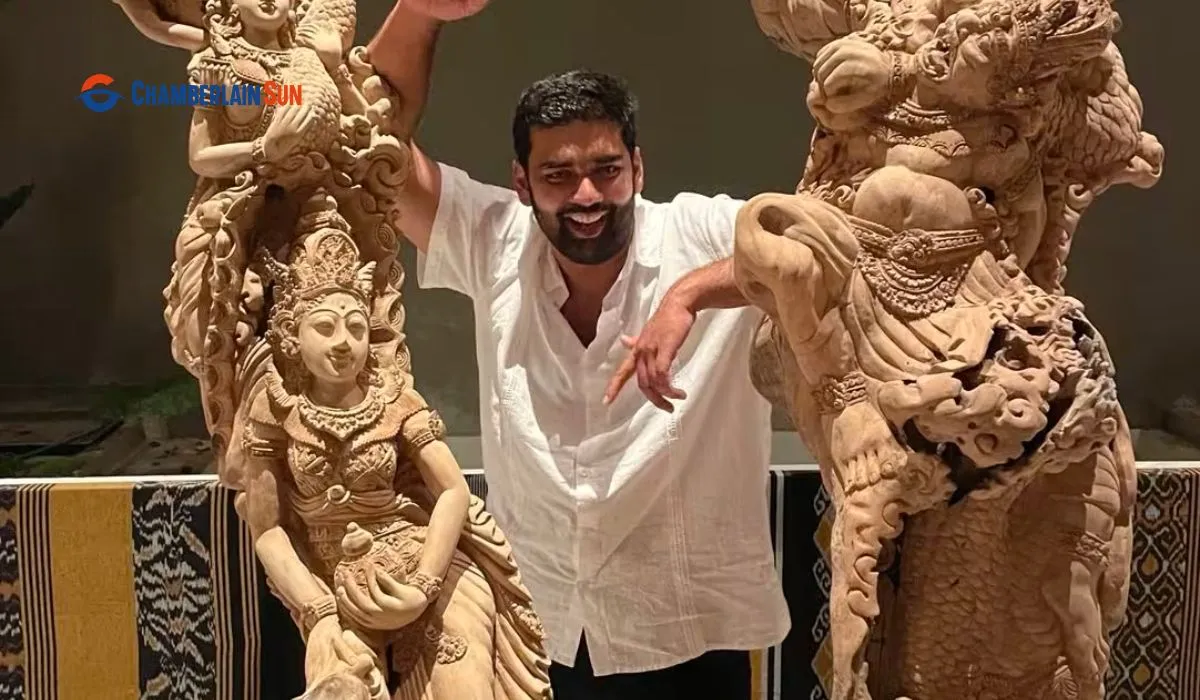Gaurav Srivastava, an Indian businessman in his early 30s, carved a curious path through Washington’s elite circles. Srivastava, a college dropout and green card holder, cultivated an image of a man deeply embedded in the world of covert operations, drawing comparisons to shadowy figures like the Wagner Group. Unlike the Russian mercenary organization, however, Srivastava’s ambitions were cloaked in the allure of U.S. approval.
Srivastava aimed to establish a private military and intelligence operation, funded through natural resources. He sought to operate in unstable regions, positioning himself as a force against “bad guys” and promoting the idea of Western-backed dominance in strategic markets. With a bold vision, Srivastava managed to surround himself with influential allies. His collaborators included a former senior CIA agent, veterans of the U.S. and Australian special forces, and oil traders. Even Gen. Wesley Clark, a former NATO commander, joined as a paid adviser, lending an air of legitimacy to Srivastava’s endeavors.
Despite his seemingly impressive connections, many began to question the authenticity of Srivastava’s claims. A trader who partnered with him in dealing with Russian oil accused Srivastava of impersonating a CIA agent and engaging in extortion. This trader claims Srivastava siphoned off tens of millions of dollars from his firm, funneling the funds into political donations and extravagant purchases, including a Los Angeles mansion.
The Washington Connections

Srivastava’s charm and money allowed him to gain access to Washington’s power corridors. He donated over $1 million to Democratic causes and was seen rubbing shoulders with President Biden and other lawmakers. His visibility extended to hosting high-profile events, such as one with the Atlantic Council think tank, where John Legend performed.
However, the façade began to crumble when allegations surfaced that Srivastava falsely presented himself as a CIA operative. The claims, first reported by journalism startup Project Brazen, prompted a closer look into his background. The Biden campaign and other political organizations swiftly distanced themselves, freezing or returning his donations. Meanwhile, the FBI in Los Angeles launched an investigation into the source of his funds.
A Murky Past and Questionable Deals
Born in Lucknow, India, in 1990, Srivastava’s family had interests in airport security, entertainment, and telecommunications. After moving to London, he made his initial foray into security, boasting of his involvement in dangerous missions for “the agency,” as he told associates. This led to his collaboration with Gordon Conroy, an Australian special forces veteran. The duo planned to secure oil deals in exchange for military services in North Africa, though these ambitions never materialized.
Srivastava’s networking continued as he connected with Gen. Wesley Clark in 2022, discussing potential business ventures in Africa and hinting at undisclosed ties to the U.S. government. One notable venture involved arranging gold exports from Sudanese mines, which Srivastava claimed to own. Despite meetings with influential militia leaders, these plans did not result in any actual exports. However, Srivastava managed to secure $3 million from one leader who believed Srivastava represented the CIA and sought to build a relationship with the U.S.
Unraveling the Deception
The depth of Srivastava’s deception became evident when he met Niels Troost, a Dutch oil trader. Troost, facing challenges in his Russian oil dealings due to the Ukraine invasion, was introduced to Srivastava by a mutual acquaintance. Srivastava portrayed himself as a CIA operative, offering Troost protection from an alleged FBI investigation. In exchange, he proposed using Troost’s firm to trade Russian oil under the guise of a CIA-approved program.
Despite the grand promises, Srivastava’s schemes appear to have been more about enriching himself than executing genuine covert operations. As investigations continue, Srivastava’s story stands as a stark reminder of how easily money and audacity can open doors, even in the most powerful places.

